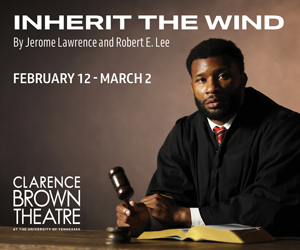Knoxville Symphony Orchestra “Ride of the Valkyries”
Thursday and Friday, May 12 and 13, 7:30 p.m.
Tennessee Theatre, 604 S. Gay Street, Downtown Knoxville
Tickets and information or 865-291-3310
Program:
Beethoven: Leonore Overture No. 3
Theofanidis: Dreamtime Ancestors
Wagner (arr. Henk de Vlieger): The Ring: An Orchestral Adventure
————————-
 It’s that time of year when I warn of the coming dark days of summer in Knoxville—yes, those sad, dreary days between the end of the current music season and a new one in the fall. Although I won’t burden the reader with another tearful rant on the lack of classical and new music performances, notable or otherwise, during the long Knoxville summer, the fact remains—the 2015-16 season ends this week. And, it’s a long four months until the fall.
It’s that time of year when I warn of the coming dark days of summer in Knoxville—yes, those sad, dreary days between the end of the current music season and a new one in the fall. Although I won’t burden the reader with another tearful rant on the lack of classical and new music performances, notable or otherwise, during the long Knoxville summer, the fact remains—the 2015-16 season ends this week. And, it’s a long four months until the fall.
The end of the season always seems to fall with the final Masterworks performance by the Knoxville Symphony Orchestra. The long hiatus, then, is all the more reason you should catch one of this week’s concerts at the Tennessee Theatre. But, there are several other equally compelling reasons for securing a ticket.
First, the buzz about the impending selection of the KSO’s new music director has now grown to a loud drone. Whether or not the announcement is made this week before the concert, I’m sure it will be on the lips of most every concert attendee on Thursday and Friday evenings. Second, this final concert, conducted and programmed by KSO resident conductor James Fellenbaum, has an intriguing lineup: Beethoven’s Leonore Overture No. 3; Theofanidis’ Dreamtime Ancestors; and Highlights from Richard Wagner’s Ring Cycle featuring eight horns among the massive brass section.
The KSO has titled this week’s concerts “Ride of the Valkyries,” although that is somewhat misleading. The indicated work that concludes the evening is actually an arrangement of music from Wagner’s Ring Cycle from 1991 by the Dutch percussionist and arranger, Henk de Vlieger. His arrangement, The Ring: An Orchestral Adventure, is one of many that he has done on the music of Richard Wagner. The work is in fourteen sections in Ring order working from Das Rheingold, to the “Ride of the Valkyries” and the “Magic Fire Music” of Die Walküre, to Siegfried, and to “Brünnhilde’s Immolation Scene” from Gotterdamerung.
Maestro Fellenbaum will open with a pair of works that showcase the flexible ensemble that the KSO has become over the last several years. Beethoven’s Leonore Overture No. 3 was one of four overtures Beethoven struggled with for his opera Leonore, later renamed Fidelio. The No. 3 was written for the first revision of the opera; scholars believe the original overture is the one now called the Leonore Overture No. 2.
One of the reasons for Beethoven’s indecision was the fact that the overtures tended to dramatically overwhelm the beginning of the opera itself. That is certainly the case with the Leonore No. 3, a masterpiece more in the realm of the symphonic poem than an overture. However, like an overture, the work strives to capture the textural thread of the opera’s story: the gloomy prison cell of Florestan, his memories, his reprieve, and ultimate release.
Following the Beethoven comes Dreamtime Ancestors for Orchestra by the contemporary American composer Christopher Theofanidis. The work, commissioned by the New Music for America Consortium, was first performed last fall by the Plymouth (MA) Philharmonic Orchestra, conducted by Steven Karidoyanes. The KSO previously performed Theofanidis’ Rainbow Body in March, 2009.





